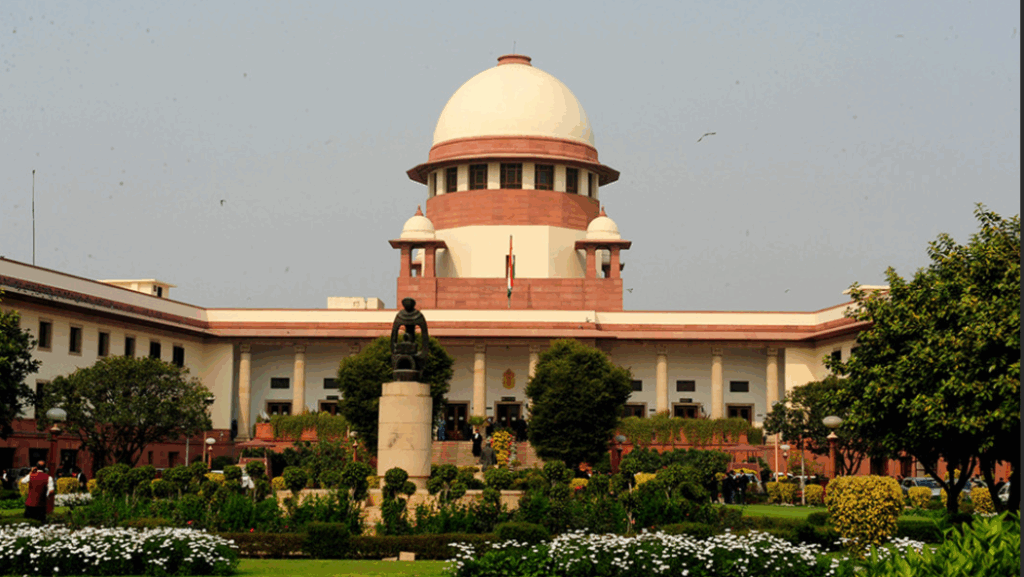Shreya Gupta
On July 22, 2025, the Supreme Court of India is set to hear a Presidential Reference under Article 143 of the Constitution. The reference concerns fundamental questions related to the constitutional process of granting assent to bills by the Governor under Article 200 and by the President under Article 201.
A Constitution Bench comprising Chief Justice of India BR Gavai and Justices Surya Kant, Vikram Nath, PS Narasimha, and AS Chandurkar will preside over the matter. This move comes in the wake of a judgment in the Tamil Nadu Governor’s case, where the Supreme Court laid down specific timelines for the Governor and the President to act upon bills passed by a State Legislature.
In that case, the Court held that the Governor could not indefinitely withhold assent, a practice commonly referred to as a “pocket veto” and mandated that decisions must be taken within three months. Similarly, if a bill is reserved for the President’s consideration, the President too must act within three months. The Court further clarified that in cases of delay or non-action, the State Government could seek a writ of mandamus to enforce compliance. Additionally, the Court declared that ten bills pending with the Tamil Nadu Governor for over a year had received “deemed assent.”
This judgment prompted considerable political and constitutional debate, including sharp criticism from the Vice President of India, who questioned the judiciary’s authority to issue directives to the President. The Vice President notably described the use of Article 142 powers by the judiciary as akin to a “nuclear missile.” In this backdrop, the President of India has invoked Article 143 to seek the Supreme Court’s opinion on a range of constitutional questions.
The reference outlines 14 key issues. Firstly, it seeks clarity on the constitutional options available to a Governor when a Bill is presented under Article 200. It then questions whether the Governor is bound by the aid and advice of the Council of Ministers in exercising these options. A significant concern is whether the Governor’s discretion under Article 200 is subject to judicial review and whether Article 361, which provides personal immunity to the President and Governors, acts as an absolute bar to such review. Another critical issue is whether, in the absence of any specific constitutional timelines for the Governor and President to act, the judiciary can prescribe such timelines and regulate the manner of exercise of these constitutional powers.
Further, the reference questions the justiciability of the President’s discretion under Article 201 and whether the President must seek the opinion of the Supreme Court before assenting to bills reserved by the Governor. It also raises the issue of whether decisions under Articles 200 and 201 can be subject to judicial scrutiny before the bills become law and if courts can assess the contents of a bill prior to its enactment.
A core constitutional issue is whether the powers of the President and Governor can be substituted or overridden through directions issued under Article 142. The reference also questions whether a State law can be said to be in force without the Governor’s assent under Article 200. It further highlights the mandatory requirement, under the proviso to Article 145(3), for any Bench of the Supreme Court to refer substantial constitutional questions to a Constitution Bench of at least five judges.
Additionally, the scope of Article 142 is examined, whether it is confined to procedural law or if it can be used to pass orders inconsistent with existing constitutional or statutory provisions. Finally, the reference seeks clarity on whether the Supreme Court has jurisdiction to adjudicate disputes between the Union and State Governments beyond a suit under Article 131 of the Constitution. The outcome is expected to have a long-standing impact on Centre-State relations and the functioning of the federal structure in India.
Instagram: Click Here
LinkedIn: Click Here
For Collaboration and Business: info.desikaanoon@gmail.com

